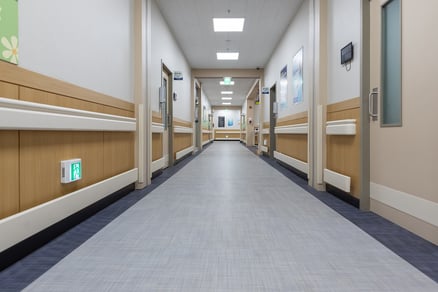
Labored breathing, surgical infection, and uncontrolled pains have been some of the reasons for patients' readmission in hospitals.
Hospital readmissions can be a challenging and costly experience for both patients and caregivers.
Not only do they disrupt the recovery process, but they can also be emotionally and financially burdensome.
According to the National Library of Medicine, 15% of senior patients were readmitted in less than a month of being discharged.
That study revealed that in 2016/17, over 500,000 emergency readmissions were reported by 84 hospitals, and that figure has risen over the past few years.
The study points out that care coordination by the hospital, allied healthcare professionals, and caregivers are vital to keeping people from returning to the hospital.
Follow through post-discharge care procedures must be communicated and carried out.
In 2022, the International Journal of Heart Failure reported a 11.54% increase in deaths among readmitted patients. This proves much needs to be done asides from giving patients 10-15 minutes of care instruction and pamphlets about their illness.
On the other hand, having a caregiver implement the following measures has reduced patient readmissions:
1. Medication Management: Medication errors and non-adherence significantly contribute to hospital readmissions. Caregivers should take the following steps to ensure proper medication management:
• Maintain an up-to-date list of all medications, including dosages and schedules.
• Familiarize yourself with potential side effects and drug interactions.
• Regularly review medications with the healthcare team.
• Use medication reminder apps to help with adherence.
2. Home Safety and Fall Prevention: Creating a safe environment at home is crucial to prevent accidents, which can result in hospital readmissions. To avoid this, caregivers should conduct a thorough home safety assessment by:
• Removing trip hazards, such as loose rugs
• Installing handrails and grab bars in bathrooms and along staircases.
• Ensure proper lighting in all areas of the home.
• Keep commonly used items within reach.
3. Nutritional Support: Proper nutrition is vital for recovery and preventing complications that may lead to patient readmission. As a caregiver, you can promote healthy eating habits by:
• Ensuring the availability of nutritious foods at home.
• Encouraging regular hydration.
• Assisting with meal preparation
4. Regular Follow-up and Preventive Care: After discharge, caregivers should prioritize regular follow-up appointments with the primary care physician or family members involved in the patient's care. Attending these appointments enables early detection and management of potential complications and concerns.
Ezra Home Care understands the importance of proper communication and follow-through of discharge instructions. We are committed to assisting every client to recover safely and successfully after their surgical procedure or acute hospitalization.
We provide an experienced and reliable team of professionals to ensure a safe, successful transition and continued recovery.
Our team will communicate and collaborate with VNA's, doctors, and hospital/rehab discharge planners to discuss each client's specific care needs, review current medication lists, and confirm follow-up appointments.
Structured "hand-off" communication between the professionals involved improves the quality of care clients receive and may avoid unnecessary re-hospitalization.
Planning for needs such as transportation to and from surgery and follow-up appointments, prescription and equipment pickup, and coordinating care at home for at least the first 24 hours after discharge is imperative.
Ezra Home Care is available to provide the support needed.
Contact Us
or call us at 617-527-9000
References:
A Place for Mom
The Robert Woods Johnson Foundation
The Bounce Back Effect
Hospital Bounce Back Readmissions
The Bounceback Problem - Slate.com


 Tweet
Tweet
 Share
Share



